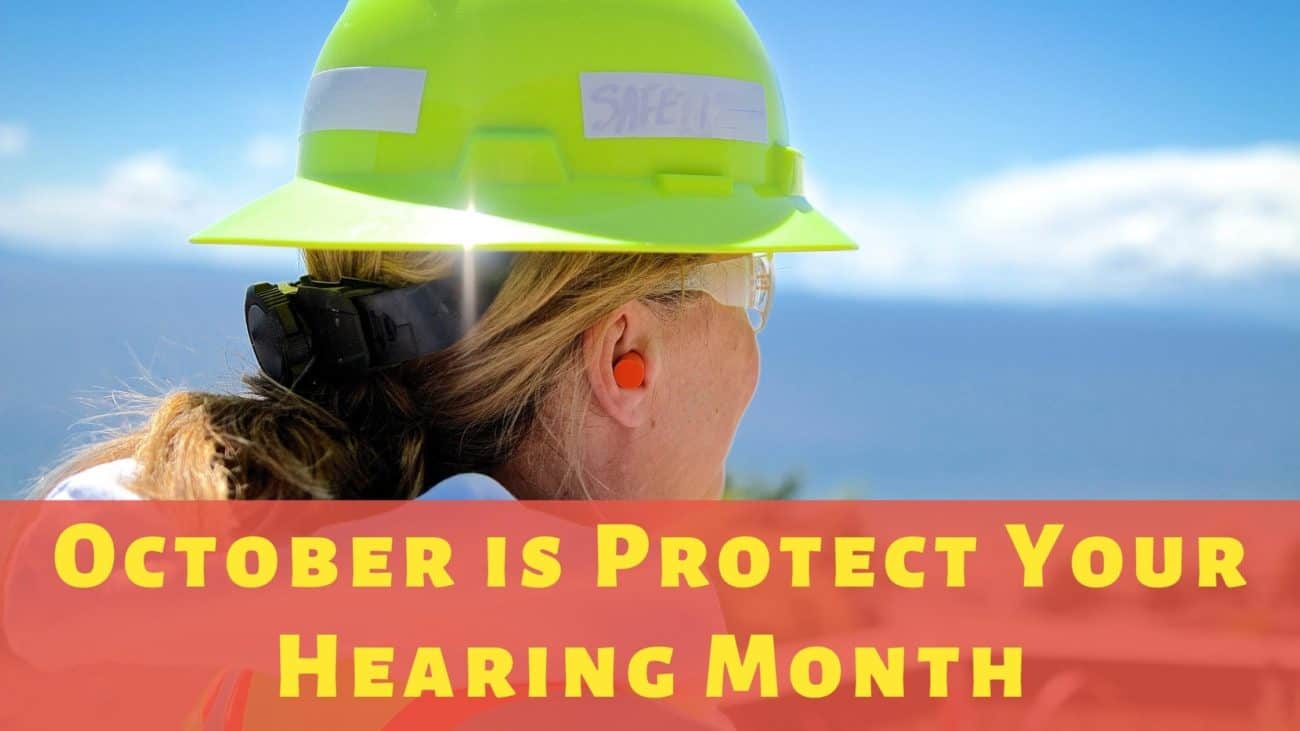- Everyday Sounds That May Be Making Your Tinnitus Worse - May 7, 2025
- The Hidden Dangers of Everyday Noise and How to Stay Safe - April 9, 2025
- World Hearing Day Serves as a Reminder to Prioritize Hearing Aid Maintenance - March 3, 2025
When you think of the places where hearing protection is necessary, what comes to mind? You might think immediately of a noisy factory or an airport tarmac where employees are exposed to loud sounds for the duration of their shifts. Indeed, these places are dangerous for hearing, and advanced hearing protection is necessary for these workers to remain safe. However, there are other places of business and leisure activities that pose a risk, as well, and you might be surprised to learn which places can be damaging to your hearing.
Let’s take a moment to look at some of the places where hearing can be damaged, including workplaces and recreational spaces. As we celebrate “Protect Your Hearing Month” this October, take the opportunity to share with others just how important it is to protect your hearing.
Occupational Hearing Damage
Large places of business, such as factories, transportation hubs, and military posts are required to provide hearing protection for their employees, but these large organizations are not the only ones required to do so. The Occupational Health and Safety Administration (OSHA) is tasked with checking in on these places of business to make sure they are protecting their workers.
However, some small businesses can escape the watchful eye of OSHA. Though they might not have the proper requirements, equipment, and training in place, they can be just as risky to employee hearing ability. Some of the small businesses that can pose a risk to hearing might surprise you. Auto mechanics often use loud equipment in resonant garages, and that sound can be damaging to workers’ hearing ability after a full shift. Restaurants, bars, and other establishments where people gather can pose a risk, as well. At these places of business, the voices of patrons add to the existing background sound of appliances and music, combining to form a serious hearing risk.
Although these employers might not be aware of OSHA regulations, they are required to protect their employees’ hearing. If you work at a place like this, it is important to take hearing protection into your own hands. You can talk with your manager about the right type of hearing protection and the appropriate length of a shift in a loud place. Even wearing disposable foam earplugs can reduce the decibel level of your workplace by 10 to 15 decibels, providing essential protection.
Recreational Hearing Damage
Sometimes our leisure and recreational activities are the cause of hearing damage, and once again it is important to take responsibility for your own hearing ability. Some risky places might be obvious to you, such as a loud rock concert or dance club. Fewer people are aware that sporting events can cause a serious risk to one’s hearing ability.
Particularly the roaring crowd of a professional football game or the echo chamber of a basketball court can amplify sound to dangerous levels, particularly when the game is exciting. You might not think about wearing hearing protection in these settings, but it is a good way to make sure that you are not causing yourself harm through leisure activity. Perhaps the most common form of leisure activity that can cause hearing damage is wearing headphones or earbuds at a loud level.
These devices make it possible to project music, podcasts, audiobooks, and audio with video directly into your ear canal. With that highly directional source of sound, others might not realize just how loud your devices are. Particularly when they are used in combination with background noise, such as while mowing the lawn or traveling on a noisy train, the sound of the device is added to an already loud scenario.
One important way to protect yourself from leisure noise is to limit the time of exposure. Whereas it might not be possible to limit your working shift to a reasonable amount of time, you can limit how long you are spending in loud recreational places or how long you are wearing your headphones or earbuds. When you take responsibility for your own hearing protection, you can ensure that you are protected for years to come.
Don’t put off getting the protection you need and putting into practice some of these lifestyle habits that promote hearing health!

